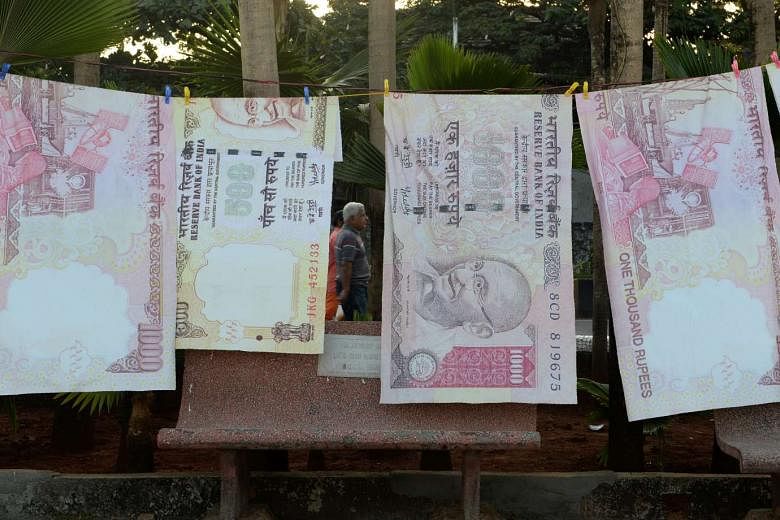In just one hour, the several thousand rupees that Ms Arti Mulchand withdrew from an automated teller machine in India became, in her own words, "like toilet paper".
The Singaporean communication agency director had gone to Pune, a city in west India, for a week to care for her sick relative.
At 7pm on Nov 8, Ms Mulchand, 40, had withdrawn the money - she declined to reveal the exact amount - to foot her relative's hospital bills the next day.
The amount was dispensed in 500 and 1,000 rupee bills.
When she returned to her family home at 8pm, the news broke: The notes would be invalidated by midnight as part of a crackdown on rampant corruption.
"Everyone thought it was some kind of a joke. We thought it was impossible," Ms Mulchand told The Straits Times. "But it became increasingly apparent that it was real. We completely panicked. In an hour, our money became worthless."
The next day, banks and ATMs were shut and shopkeepers refused to accept the notes. The streets became "uncharacteristically quiet", she said, as people did not dare to spend money.
A long queue formed at a petrol station that was willing to take the bills, she recalled.
"I heard that people were filling their vehicles with the minimum amount of petrol so that they could get change for 500 rupees," she said. "Everybody was holding on to every coin they had."
Fortunately for Ms Mulchand, the hospital was willing to accept her old notes. But with the banks closed, she had to borrow usable money from a relative for her meals. "My sister and I made do with $20 worth of rupees to last us for two days. For lunch, we shared a plate of food from the hospital canteen, which was more affordable," she said.
She returned to Singapore on Nov 11.
Ms Vanessa Frida, 38, a marketing director who was on a work trip to Mumbai from Nov 6 to 10, recalled waking up on Nov 8 to news "on every television channel" about the ban. Her hotel front desk allowed people to change their expired notes into 100 rupee bills, for up to 1,000 rupees, but that stopped by 1.30pm, she recalled.
"When I left, I had a bit of spare cash, but the airport duty-free shops did not accept the notes. There were a lot of frustrated people," the Singaporean said.
"So I kept a 500 and 1,000 rupee note as a souvenir."
Melissa Lin

